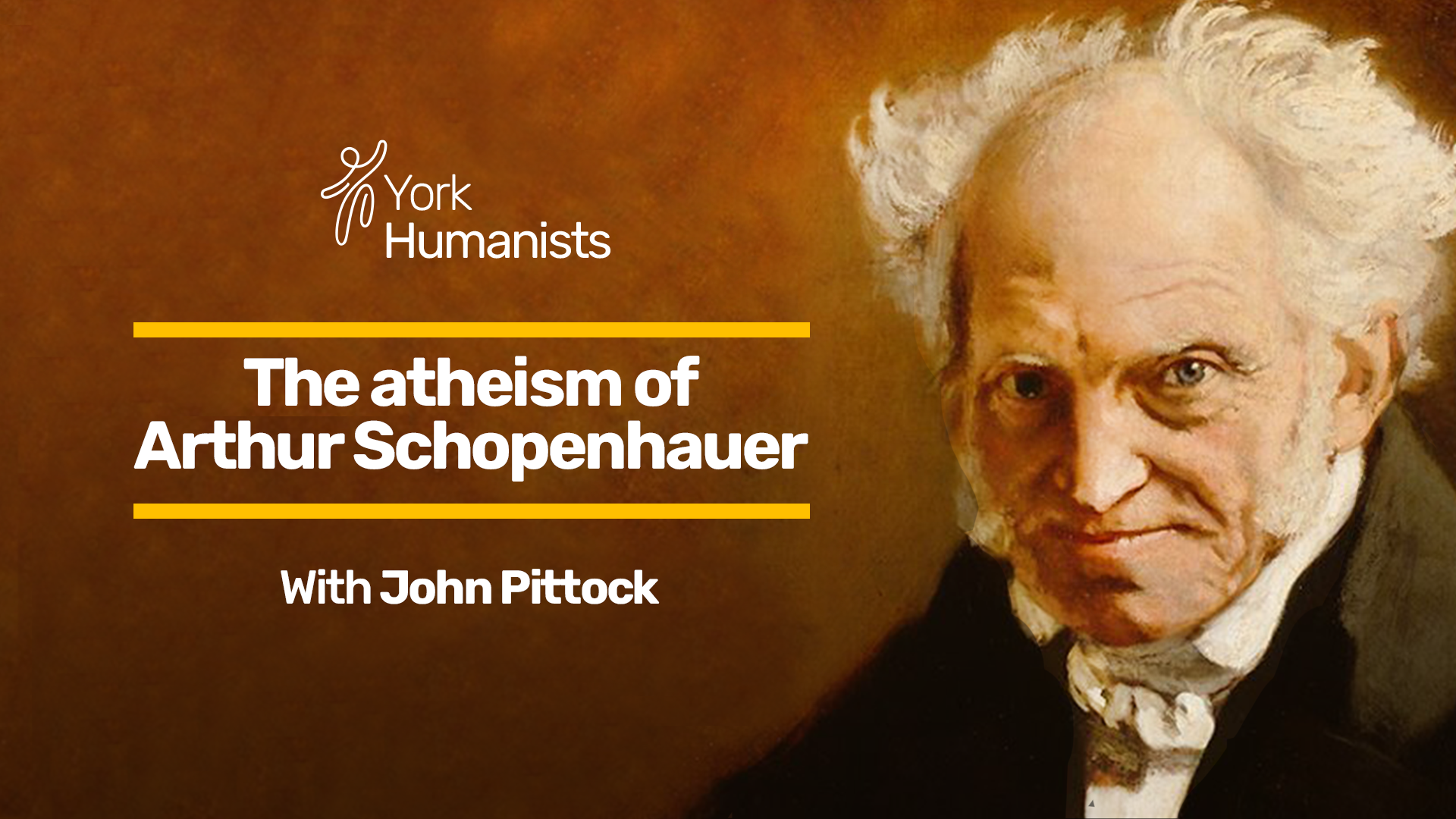The atheism of Arthur Schopenhauer | York Humanists
 While it is generally agreed that humanism does not accommodate metaphysics, paradoxically, the humanist movement has much to be grateful to Arthur Schopenhauer (1788-1860) for. He is now widely acknowledged to be one of Western cultures greatest metaphysical system builders.
While it is generally agreed that humanism does not accommodate metaphysics, paradoxically, the humanist movement has much to be grateful to Arthur Schopenhauer (1788-1860) for. He is now widely acknowledged to be one of Western cultures greatest metaphysical system builders.
Surprisingly for most readers, he was the first Western philosopher to declare his atheism at a time when it was not just unfashionable but dangerous to do so (most of the great western philosophers since the time of the Roman Empire had been Christians). Moreover, he was able to articulate and widely propagandise his atheistic beliefs such, that they were embraced by a substantial proportion of the nineteenth century thinking classes.
Crucially, and of interest for humanists is that he had a profound influence on the minds of some of Western culture’s greatest thinkers, musicians, scientists, writers, and artists (Schrödinger, Einstein, Wittgenstein, Tolstoy, Freud, Kafka, Mahler, Wagner, Kierkegaard et al) either by way of acceptance, or a direct reaction against him and his ideas but, nonetheless, influencing the western cannon of thought.
What was it then that caused the mature Wagner to write that his introduction to Schopenhauer's philosophy ‘was the most significant event of his life and that the impact was extraordinary and decisive’? Also, why would Brian Magee, in his own autobiography, write this extraordinary commendation on Schopenhauer’s ‘World as Will and Representation’: “which I regard as the most mind stretching capacious, illuminating and penetrating system of philosophical ideas that has yet been forged by a human mind”?
John Pittock will give an account of the primary concepts that constructed Schopenhauer's atheistic philosophy and its subsequent impact on the minds of the major influencers of the 19th and 20th centuries, which were both beneficial and cataclysmic.
About John Pittock
John is a company director currently committed to a largescale sustainability project. Having had a lifelong interest in the history of ideas, his passion for the subject had its origins in working extensively in the Gulf region, the former USSR, Israel, Iran, Lebanon and the Far East. This gave him the opportunity to experience first-hand the cultural, political, religious and social consequences of ‘ideas’ that started with either one individual (or at most a small group) and yet resulted in extraordinary social, economic and political upheavals.
His interest in Schopenhauer was directly triggered by his experience of working in Siberia in the 70’s and observing that even though Lenin and Stalin were long dead their ideas and actions still held an iron grip over the country. This led to an to examination of ‘German idealism’ as the source of Marxism and this in turn fired his interest in Arthur Schopenhauer.
Tickets
| Free ticket | £0.00 |
Location
Priory Street
York, YO1 6ET
